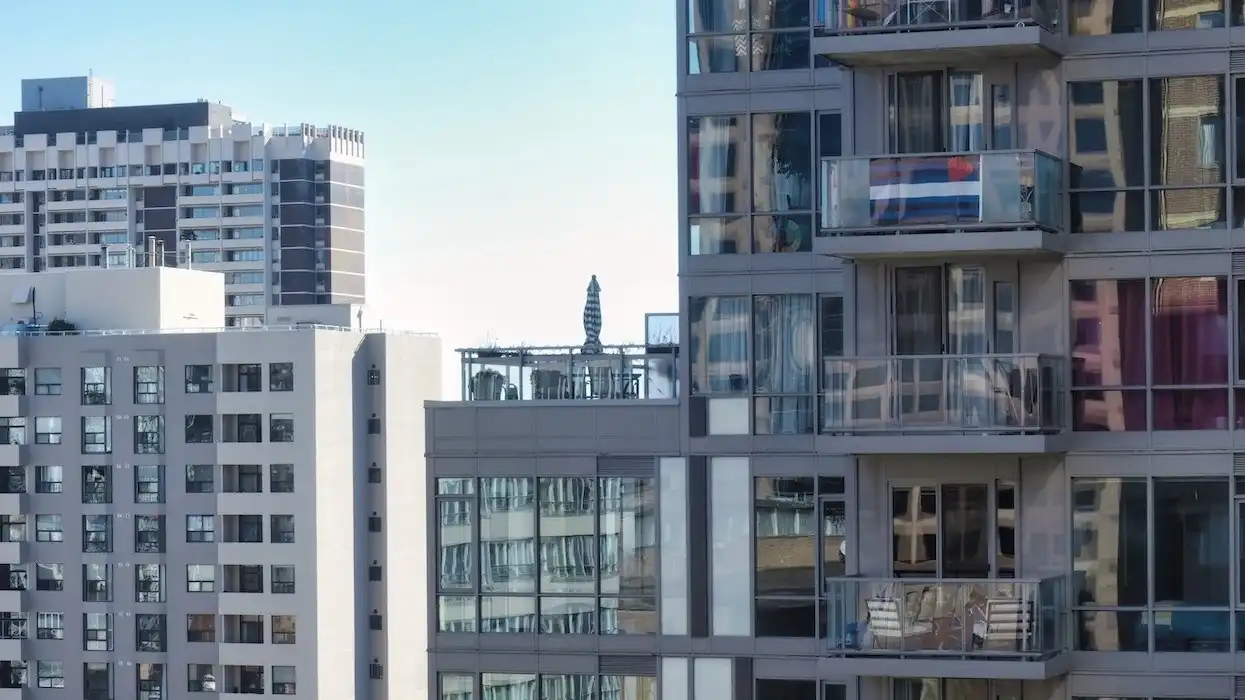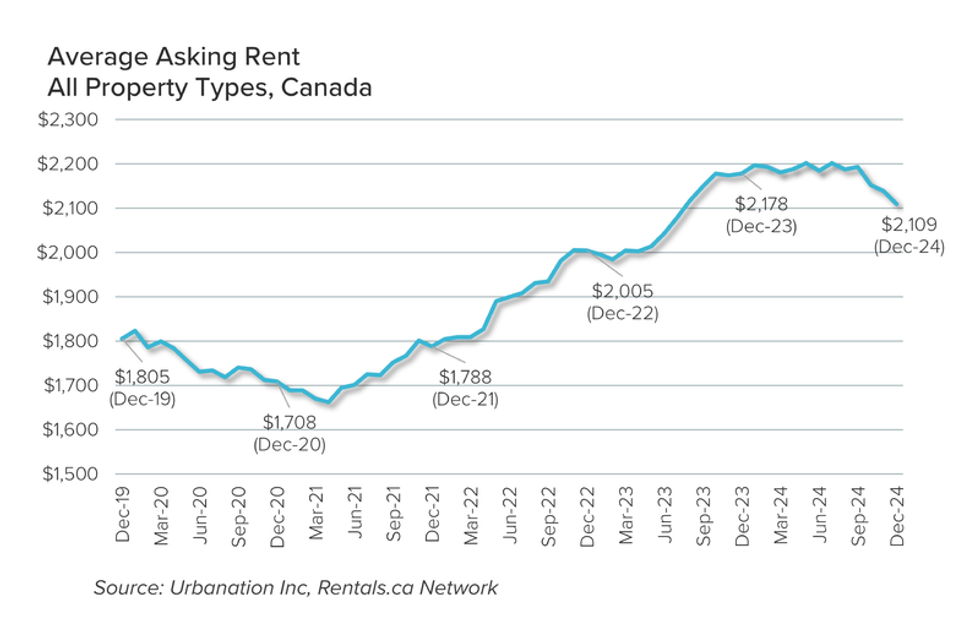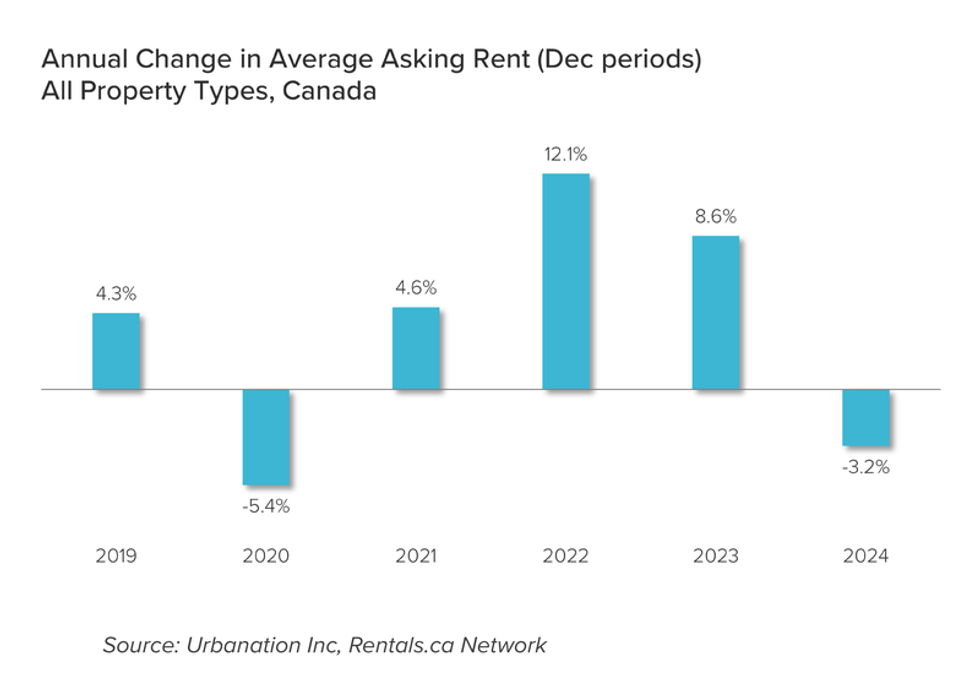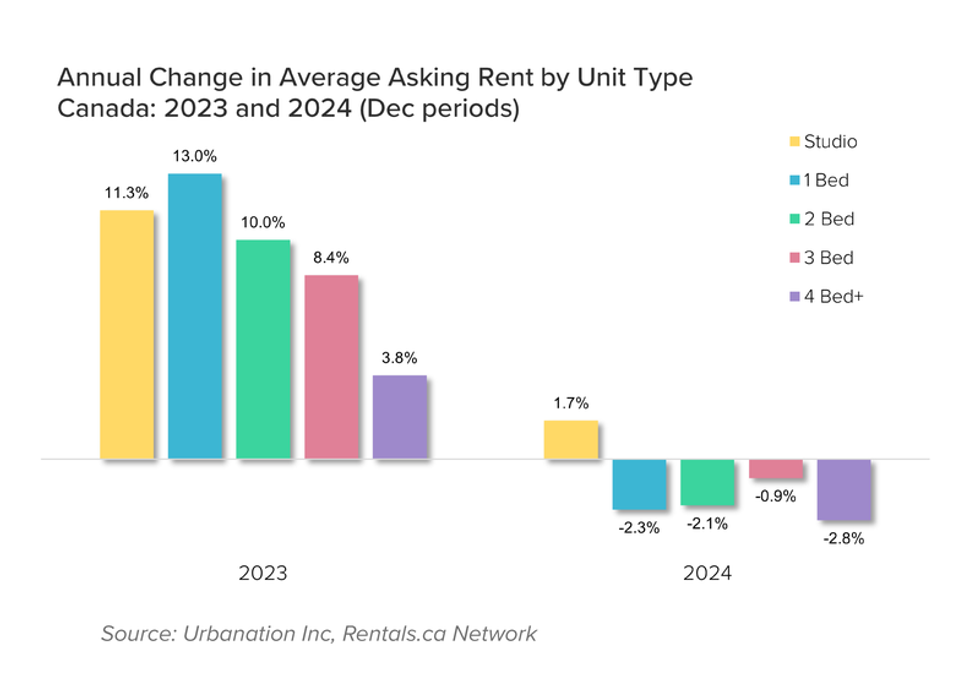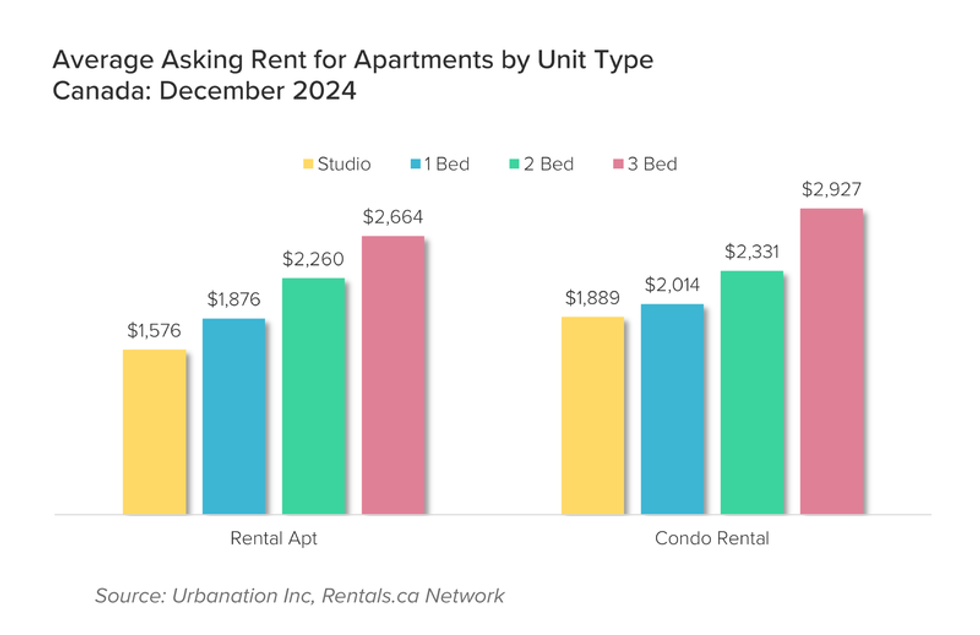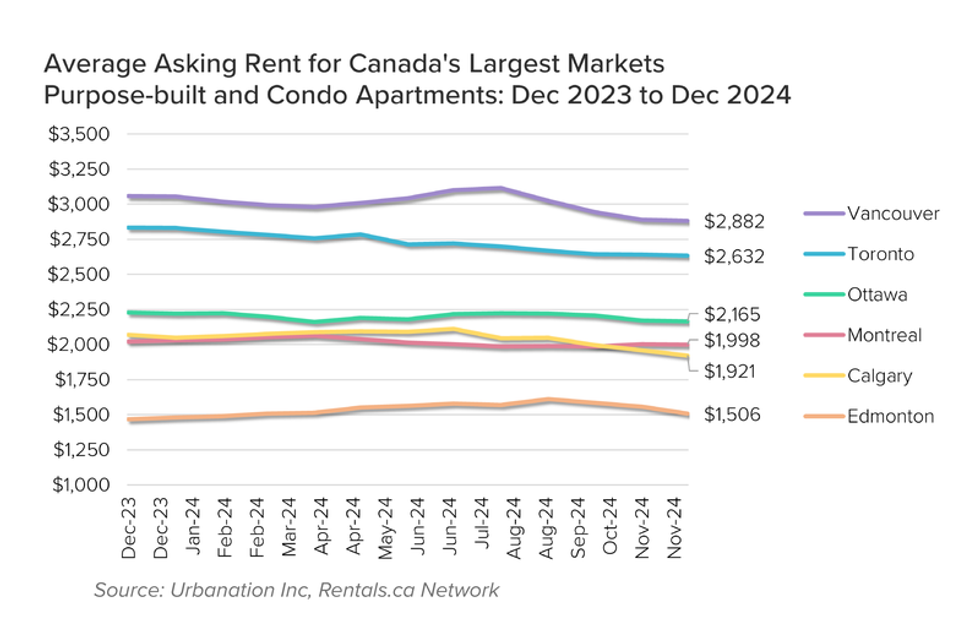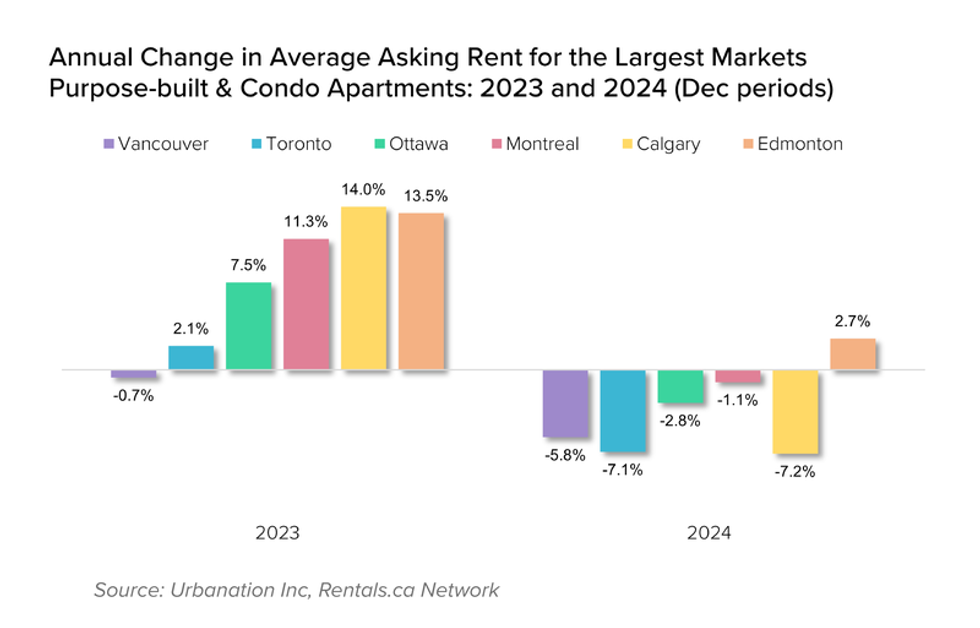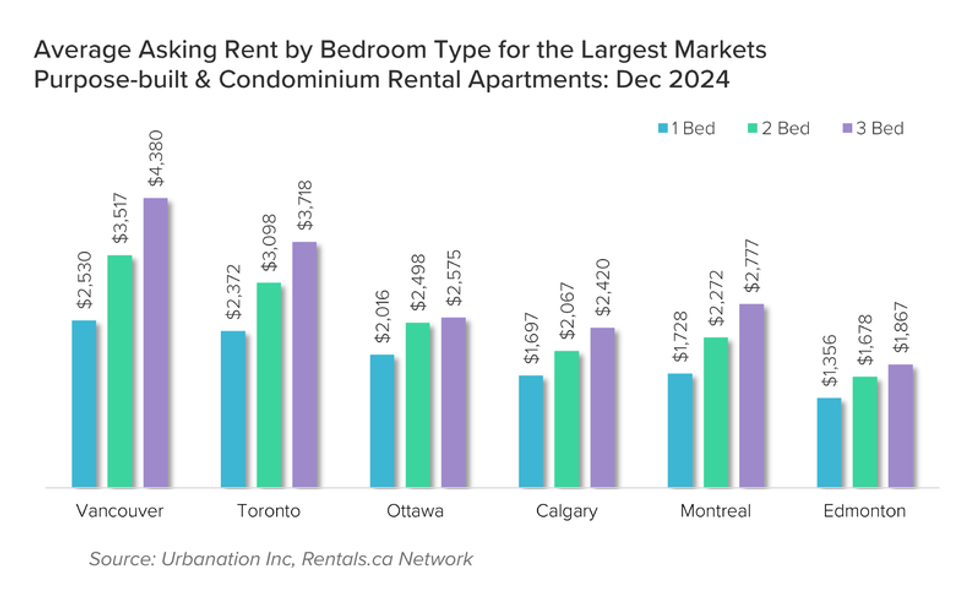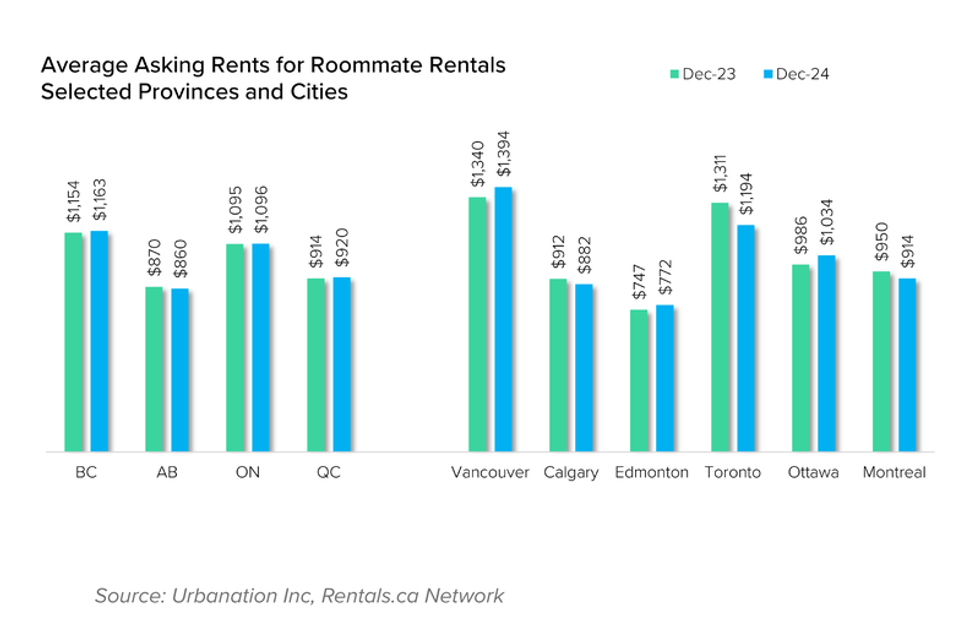After a historically sluggish year, major Canadian rental markets ended 2024 on a cool note. According to a report released Thursday from Rentals.ca and Urbanation, the average asking rent across all property types was $2,109 in December, representing a year-over-year decline of 3.2% and 17-month low for the metric (on the heels of a 15-month low in November).
The decline in the national average is especially jarring when you consider that rents were up 8.6% (year over year) in December 2023, and 12.1% in December 2022. The decrease recorded over 2024 is additionally the first since the COVID-19 pandemic in 2020 when rents fell 5.4% in the year.
The national metric has been slipping for five straight months now, says the report, “indicating a steepening decline for rents heading into 2025.” Nonetheless, national rent has climbed 16.8% over the past five years, equating to an average of 3.15% per year.
There was nuance across different property types, the report shows. Rents for units within houses and townhouses fell 7.4% in 2024 to an average of $2,181, and condo rents slid 5.2% to $2,219, but purpose-built rentals retained their value, experiencing a barely perceptible 0.3% decrease to $2,070. “This followed a 12.8% annual increase in purpose-built rents in 2023,” the report points out.
Meanwhile, studio units were the only unit type to see annual rent growth, with average asking edging up 1.7% to $1,591. All other unit types saw asking rents down compared to year-ago levels.
Speaking just to apartments (those within purpose-built rentals and condos) average asking rent came down 1.3% year over year to $2,088. Three-bedroom units outperformed other unit types in terms of year-over-year rent growth in both the purpose-built rental (up 5%) and condo (up 0.7%) segments, perhaps speaking to the need and demand for family-sized rental apartments.
With the sole exception of Edmonton, rents across the country’s largest markets posted year-over-year losses in December, with the steepest drop recorded in Toronto. We’ve seen Toronto’s market become increasingly soft since the fall of 2023, and last month, the average asking came down to $2,632, marking a 7.1% decrease year over year. “This followed a 2.1% increase for apartment rents in Toronto in 2023,” the report notes.
In Vancouver, average rent fell 5.8% to $2,882 (after a 0.7% decline recorded in December 2023), and in Calgary, the average fell 7.2% to $1,921 (after a 14% increase recorded in December 2023). The report highlights that average rent in Calgary is now below average rent in Montreal for the first time in two years.
Three-bedroom units in major Canadian markets saw rent decreases (almost) across the board in 2024, falling 3.3% to $3,718 in Toronto, 0.1% to $4,380 in Vancouver, and 8.2% to $2,420 in Calgary. The one exception to that trend was Montreal, where rents for three-bedrooms saw an annual increase of 8.2%.
According to Urbanation President Shaun Hildebrand, who commented on Thursday’s report in a press release, the broad-based rental market softness observed in 2024 can be attributed to “multi-decade highs for apartment completions, slowing population inflows, and a weakening economy.”
“Current trends suggest rents may experience further decreases in 2025, which so far have been focused on secondary market units,” Hildebrand went on to say. “However, any rent declines should be temporary and remain minimal mostly due to a long-term undersupply of rental units in the country, with rents set to accelerate in the coming years as the current slowdown in construction works to restrict supply.”
Thursday’s report concludes with insights on shared accommodations, and that’s based on data from Ontario, British Columbia, Alberta, and Quebec. Across those four provinces, the volume of shared accommodations was up 18.4% year over year in December. Though that may seem like a steep jump, the same metric clocked in at 52% in November.
The report explains that “demand for shared units appears to be waning, in line with the broader rental market,” which is further reinforced by the national average asking for roommate units, which was down 1.2% month over month and 1.9% year over year in December (to $986).
The national average was pulled down by Toronto, where rents slipped 9% (year over year) to $1,194, as well as Montreal (down 3.8% to $914) and Calgary (down 3.3% to $882). Vancouver observed the largest annual increase for shared accommodations, at 4%, bringing the average asking up to $1,394.
